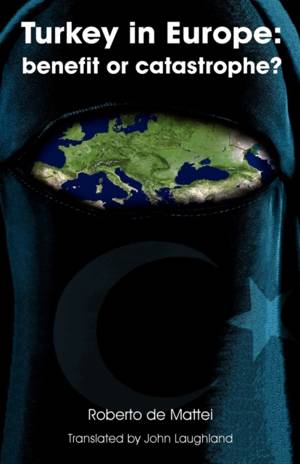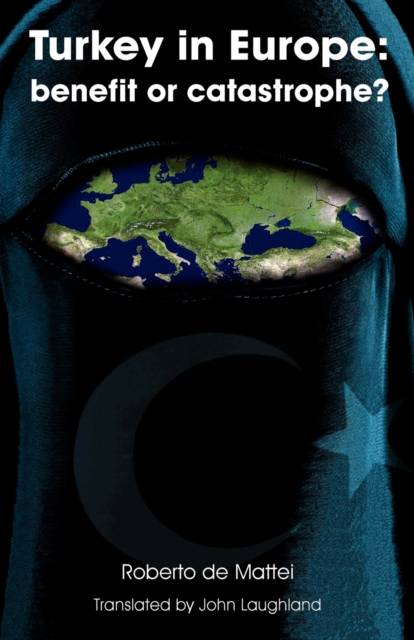
Bedankt voor het vertrouwen het afgelopen jaar! Om jou te bedanken bieden we GRATIS verzending (in België) aan op alles gedurende de hele maand januari.
- Afhalen na 1 uur in een winkel met voorraad
- In januari gratis thuislevering in België
- Ruim aanbod met 7 miljoen producten
Bedankt voor het vertrouwen het afgelopen jaar! Om jou te bedanken bieden we GRATIS verzending (in België) aan op alles gedurende de hele maand januari.
- Afhalen na 1 uur in een winkel met voorraad
- In januari gratis thuislevering in België
- Ruim aanbod met 7 miljoen producten
Zoeken
Omschrijving
European Governments and other institutions are currently engaged in complex negotiations over the question of the accession of Turkey to the European Union. Many doubts and reservations on this matter have been raised in the past years. Those who support Turkey's joining the EU maintain that it would prove to be a natural ally of the West in the fight against Islamist Fundamentalism. However, Turkey today is no longer the lay country of Kemal Ataturk: with the 2002 elections, further confirmed by the 2004 elections, the "party of the veil" led by the Prime Minister Recep Tayyip Erdogan and the President Abdullah Gul, both with a proven background of radical Islamist fundamentalism, came into power. The Treaty of Lisbon stipulates that each State in the European Union has a political weight directly proportional to its demographics. Turkey, with its almost 85 millions inhabitants, would therefore be the most populated country and, as a consequence, the most represented in the European Parliament. While Europe is giving up on its Christian roots, Turkey exhibits an extremely well-defined and strong religious - political identity and its request to join the EU has not been put forward in order to renounce such identity, but, on the contrary, to impose it more widely. With or without Erdogan, Turkey would become the leader of the Islamic minority within the European institutions, where it will no doubt play a central role. So would the potential joining of Turkey be of benefit or, instead, an irreparable catastrophe for our Continent? This book poses the question and raises the alarm.
Specificaties
Betrokkenen
- Auteur(s):
- Vertaler(s):
- Uitgeverij:
Inhoud
- Aantal bladzijden:
- 104
- Taal:
- Engels
Eigenschappen
- Productcode (EAN):
- 9780852447321
- Verschijningsdatum:
- 12/10/2009
- Uitvoering:
- Paperback
- Formaat:
- Trade paperback (VS)
- Afmetingen:
- 140 mm x 216 mm
- Gewicht:
- 140 g

Alleen bij Standaard Boekhandel
+ 36 punten op je klantenkaart van Standaard Boekhandel
Beoordelingen
We publiceren alleen reviews die voldoen aan de voorwaarden voor reviews. Bekijk onze voorwaarden voor reviews.









